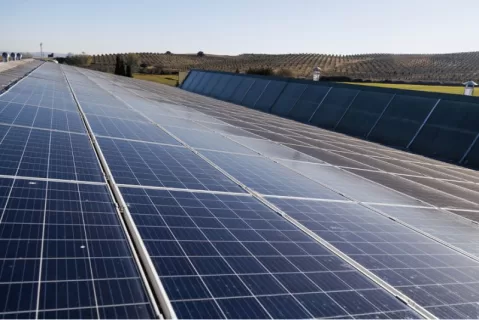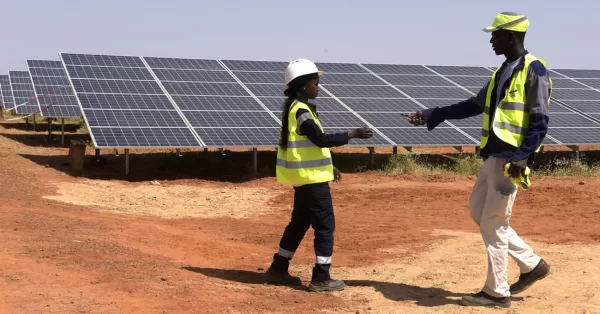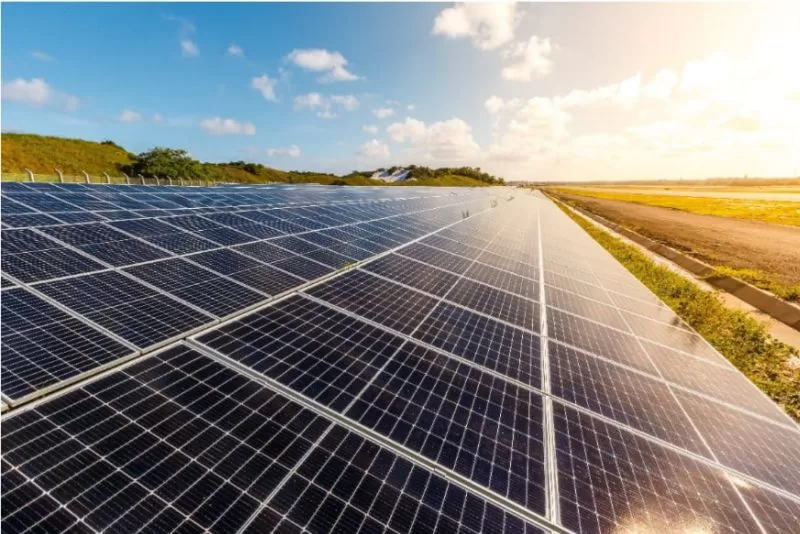Deputy Information Minister Dr Jacob Maiju Korok said the Minister for Energy and Dams, Peter Marcello, Friday presented to the Cabinet a plan of US$150 Million Juba Solar Project that entails the construction of a five megawatts hyper solar power plant in Juba City.
He said Marcello presented a Memorandum of Understanding between the Ministry of Energy and Dams and TPA Company Limited.
Cost of the Project
The purpose of the project is to support the provision of a reliable continuous and affordable energy in Juba. The estimated cost is US$150.2 million, and the maturity is 20 years plus five-year grace period on a concessional loan. This project was deliberated and passed unanimously, explained Korok.
He disclosed that the Energy Minister also requested his Finance counterpart to pay a company that invested in a solar plant US$ 50 million following a court ruling.

Korok explained that the company had sued the government in the Court of Arbitration in the US for failure to complete the payment for the 20 megawatts solar plant in Nesitu.
On Friday, the National Council of Ministers approved draft 2024/2025 budget with a focus on paying civil servants and the organized forces and cuts on travel.
The budget estimates are 4.2 trillion SSP, with a fiscal deficit of 1.9 trillion SSP.
In South Sudan, access to electricity remains critically low, with only about 13% of the population connected to the grid, a figure even lower in rural areas. Despite higher accessibility in urban centers like Juba, the reliability of electricity remains a challenge due to insufficient infrastructure and overall generation capacity.
Projects Similar to US$150 Million Juba Solar Project
Addressing the issue on energy, Aptech Africa has implemented energy projects in seven different regions, including Juba, Lakes State, Eastern Equatoria State, Warrap State, and Western Equatoria State. The projects involved the design, supply, installation, and commissioning of hybrid systems incorporating photovoltaic (PV) systems, diesel generators, and standalone solar street lights at key health facilities. These facilities include Kator Primary Health Care Center, Alsaba Children’s Hospital, Juba Teaching Hospital, Rumbek State Hospital, Torit State Hospital, Kuajok State Hospital, and Yambio State Hospital.

These installations have significantly enhanced the health facilities’ ability to provide emergency care and response, reducing mortality rates associated with childbirth, injuries, and acute conditions. By eliminating reliance on the grid and reducing fuel costs, these systems also contribute to operational efficiency and cost savings. Despite having an abundance of energy resources, particularly fossil fuels, South Sudan struggles to give its citizens access to electricity. The long period of historical neglect of the region by the Sudanese government before independence and the recent conflict, is the primary cause of the current energy challenges.
The introduction of reliable power enables health facilities to operate beyond daylight hours, offering crucial services during nighttime emergencies. The solar installations in Juba represent a pragmatic solution to South Sudan’s energy challenges, promoting sustainability and resilience. By providing dependable electricity, reducing fossil fuel dependence, and empowering communities, solar energy is paving the way for Juba’s energy security and economic development.
Also read: Bids invited for construction of solar-powered water supply systems in Juba
Construction of South Africa’s Largest Solar Project Commences
Mali Commences Construction of West Africa’s Largest Solar Plant
